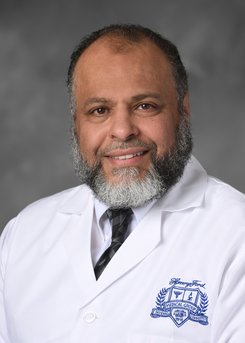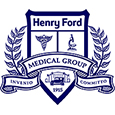
Nour-Eddine Rhaleb, PhD
Specialties: Research
Board Certification and Education
- University of Sherbrooke, 1992
- Henry Ford Hospital, Hypertension, MI, 1994
About Me
Biographical Statement
Since my time at university, I have always possessed a passion for direct teaching. It could be said that my teaching philosophy stems from as early as my time during high school, when I would spend my summers teaching and leading elementary school students.
During the last two years of my doctorate training, when he would travel out of the country, Dr. Regoli provided me the privilege of fully leading his laboratory by overseeing multiple research projects, supervising students and technicians, and managing the accounts. This gave me the opportunity to not only hone in my teaching skills, but also develop leadership skills, as this taught me to function as an independent, successful scientist. Therefore, when I joined Dr. Carretero's group as a post-doctoral fellow in 1992, I brought with me my many experiences of success and scientific independency.
Furthermore, despite some language and dialect barriers, I was able to overcome these challenges through hard work and the help from my peers. In 1994, I was promoted to Associate Scientist at the Hypertension & Vascular Research Division to study the role of endogenous vasoactive peptides in the protective effects of blockers of the renin-angiotensin system, and in 1996, I was promoted to the Senior Staff Scientist level. This position helped me to secure substantial extramural grants from the American Heart Association and NIH.
In 2004, when scientists and clinicians from Henry Ford Hospital became affiliated with Wayne State University, I was offered a position to be an Associate Professor – Research Educator. In 2019, I was promoted to Professor-FTA. My laboratory focuses on studying the mechanisms leading to hypertension and target organ damage. In particular, I study the mechanisms through which Ac-SDKP protect the cardiovascular system independently of blood pressure. This is a very important facet of our research, given that a large population of hypertensive subjects fail to have their blood pressure controlled. However, we are working to elucidate optimal way to protect such an important organ as the heart.
Titles
- Senior Staff Scientist, Hypertension and Vascular Research Division, Department of Internal Medicine, Henry Ford Hospital
- Professor-FTA, Department of Physiology, School of Medicine, Wayne State University
Research Interest
- Pre-clinical Rodent Models: Employing various rodent models for hypertension or myocardial infarction to induce cardiac remodeling, injury, and different forms of cardiac dysfunction (HFpEF or HFrEF) associated with renal disease.
- Cardioprotective Peptides: Deciphering the putative role of Ang II, Ac-SDKP, and bradykinin in the cardioprotective effects of angiotensin-converting enzyme inhibitors. This includes experimental models of hypertension and cardiac diseases such as Ang II-induced hypertension, DOCA-salt hypertension, salt-sensitive hypertension, high-fat diet, 2-hit model, and myocardial infarction-induced cardiac and renal injury and dysfunction.
- Pharmacological and Biochemical Tools: Utilizing pharmacological and biochemical tools, along with transgenic mice and rats with specific genes knocked out or over-expressed.
- Molecular Mechanisms: Aiming to elucidate the molecular and pathophysiological mechanisms underlying hypertension, cardiac hypertrophy, fibrosis, and dysfunction.
- Peptides in Cardiac Dysfunction: Investigating the role of peptides such as Ang II, bradykinin, and Ac-SDKP in HFpEF and HFrEF.
- Interleukin-4 and Inflammation: Clarifying the "pro"-inflammatory effects of endogenous Interleukin-4 in hypertension-induced cardiac remodeling and dysfunction.
Awards & Honors
- NIH funded Scientist
- Fellow of the American Heart Association
- Fellow of the AAAS
Videos and Articles
-
Videos
-
Blog Posts
Locations



Hospital Privileges
- Henry Ford Hospital
.svg?iar=0&hash=F6049510E33E4E6D8196C26CCC0A64A4)

/hfh-logo-main--white.svg?iar=0&hash=ED491CBFADFB7670FAE94559C98D7798)

/hfh-logo-main--white.svg?iar=0&w=300&hash=6384A2E70E92039C36CA5CCBA53F8964)